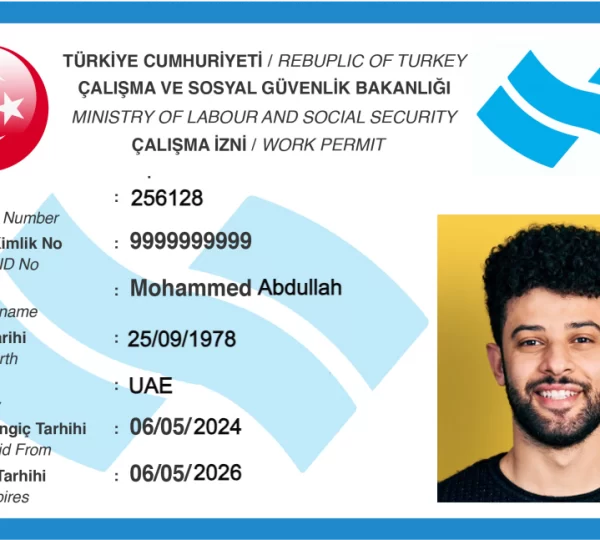
Foundation Registration in Turkey
Foundation Registration in Turkey: Steps & Legal Requirements
Establishing a foundation in Turkey offers a structured way for individuals or groups to promote charitable, educational, cultural, or social causes. Turkish foundations (referred to as “Vakıf”) are nonprofit organizations that play a vital role in addressing societal needs and contributing to community development. Registering a foundation in Turkey requires compliance with a set of legal procedures, regulations, and governance standards. In this comprehensive guide, we will cover everything you need to know about foundation registration in Turkey, including its legal framework, required documents, registration process, benefits, and compliance obligations.
Table of Contents
Understanding Foundations in Turkey
A foundation (Vakıf) in Turkey is a legal entity that operates on a nonprofit basis to achieve a charitable or public good. Foundations are distinct from associations (which are member-based) because they are created to manage specific resources for long-term philanthropic purposes, often in areas such as education, healthcare, cultural heritage, and poverty alleviation.
The key characteristics of foundations in Turkey include:
- Nonprofit Nature: Foundations must operate without the intention of generating profit, and all revenue must be directed toward the foundation’s mission.
- Endowment Requirement: Foundations in Turkey must have a certain level of endowment to be legally established. This endowment serves as the financial base to fund the foundation’s activities.
- Long-Term Goals: Foundations are typically established with the goal of having long-term sustainability to serve the public interest in various fields.

Legal Framework for Foundation Registration in Turkey
The establishment and regulation of foundations in Turkey are governed by the Turkish Civil Code (No. 4721) and the Foundations Law (No. 5737). These laws provide the legal structure and requirements for the creation, management, and supervision of foundations. The Directorate General of Foundations (Vakıflar Genel Müdürlüğü) oversees the registration and monitoring of foundations in Turkey.
Key legal requirements include:
- The Civil Code defines the rules for the establishment, operation, and dissolution of foundations.
- The Foundations Law outlines the operational guidelines, governance requirements, and tax regulations applicable to foundations.
Types of Foundations in Turkey
There are two main types of foundations in Turkey:
- New Foundations: These are foundations established after the implementation of the Turkish Civil Code. They are subject to modern laws and governance standards.
- Old Foundations: These foundations were established before the founding of the Turkish Republic and are regulated under the specific provisions of the Foundations Law.
For this guide, we will focus on the registration process for new foundations.
Eligibility and Requirements for Establishing a Foundation
To establish a foundation in Turkey, certain eligibility criteria and financial requirements must be met:
1. Founders
- Turkish Citizens: Individuals or legal entities with Turkish citizenship can establish a foundation.
- Foreigners: Foreign individuals or legal entities can also establish foundations in Turkey, but they must comply with local regulations and ensure that the foundation’s objectives do not conflict with national interests.
- Group of Founders: A foundation can be established by a single individual or by multiple founders working together toward a common purpose.
2. Endowment Requirement
The endowment (capital) is a critical element of foundation registration. The minimum financial endowment required to establish a foundation in Turkey is 500,000 Turkish Lira. This amount must be allocated as an initial capital base to support the foundation’s activities.
3. Objectives and Purpose
A foundation’s primary purpose must align with one or more of the following objectives:
- Charitable (e.g., poverty relief, healthcare)
- Educational (e.g., scholarships, schools)
- Cultural (e.g., preservation of heritage, promoting arts)
- Environmental (e.g., sustainability, wildlife protection) The foundation’s purpose must be outlined in its charter, and it cannot be established for profit-making or personal gain.
Steps for Foundation Registration in Turkey
The process of registering a foundation in Turkey involves several legal and administrative steps. Below is a detailed guide to the foundation registration process:
1. Prepare the Foundation’s Charter (Vakıf Senedi)
The foundation’s charter is a crucial legal document that outlines the mission, objectives, governance structure, and operational rules of the foundation. The charter must include:
- Name and Address of the foundation
- Purpose and Mission of the foundation
- Endowment Details (the initial capital allocated to the foundation)
- Governing Bodies (board of trustees and other administrative bodies)
- Regulations for Managing Assets and using funds
- Provisions for Dissolution
This document must be prepared in Turkish and must comply with the Turkish Civil Code and Foundations Law.
2. Notarization of the Charter
Once the foundation’s charter is drafted, it must be notarized. The notarization process ensures that the document is legally valid and recognized by Turkish authorities.
3. Submit Application to the Directorate General of Foundations
The next step is to submit the application, along with the notarized charter and supporting documentation, to the Directorate General of Foundations. The application must include:
- The notarized charter
- Founders’ personal identification documents (passport, national ID, or company registration documents for legal entities)
- Proof of the endowment deposit (confirmation that the minimum endowment requirement has been met)
- Official declarations regarding the foundation’s assets and governance structure
4. Review and Approval
The Directorate General of Foundations will review the submitted application and documents to ensure compliance with Turkish laws. If all requirements are met, the foundation will be granted legal status through the issuance of a foundation registration certificate.
5. Registration with the Tax Office
After obtaining legal status, the foundation must be registered with the Turkish Tax Office to obtain a tax identification number (TIN). This allows the foundation to operate within the Turkish tax system and claim tax benefits where applicable.
6. Publishing in the Official Gazette
Finally, the foundation’s establishment must be published in the Turkish Official Gazette, which completes the legal registration process.
Governance and Compliance Requirements
Once a foundation is established in Turkey, it must comply with ongoing legal and regulatory requirements, including:
- Board of Trustees: Foundations are typically governed by a board of trustees. The board is responsible for overseeing the management of the foundation, ensuring the proper use of funds, and maintaining compliance with legal requirements.
- Annual Reporting: Foundations must submit an annual report to the Directorate General of Foundations, outlining their activities, financial statements, and any changes to governance structures.
- Tax Compliance: While foundations may enjoy certain tax exemptions, they must still file regular tax returns, particularly if they engage in activities that generate taxable income (such as renting properties).
Benefits of Foundation Registration in Turkey
Registering a foundation in Turkey offers several benefits, particularly for those seeking to engage in philanthropic work:
- Legal Status: A registered foundation enjoys legal recognition as an entity that can own assets, sign contracts, and carry out activities in its name.
- Tax Exemptions: Foundations can apply for tax exemptions on donations, endowments, and certain types of income, which increases the financial efficiency of their operations.
- Public Trust and Support: Registered foundations are viewed as reputable organizations committed to public service, which can help attract donors, grants, and volunteers.
- Sustainability: Foundations are designed for long-term sustainability, meaning they can continue to provide benefits for years or even decades.
Challenges and Considerations
While establishing a foundation in Turkey offers many advantages, there are also several challenges to consider:
- Bureaucratic Procedures: The foundation registration process can be time-consuming, involving several steps of document preparation, notarization, and approval from government authorities.
- Financial Responsibility: Foundations must manage their endowment responsibly, ensuring that it is used in accordance with their charitable objectives and legal obligations.
- Regulatory Scrutiny: Foundations are subject to ongoing oversight by the Directorate General of Foundations, particularly regarding their financial transactions and public benefits.
Contact Us For Establish a Foundation in Turkey
Setting up a foundation in Turkey is a rewarding process that allows individuals and organizations to make a lasting impact in areas such as education, healthcare, and social development.
By understanding the legal framework, registration process, and governance requirements, founders can ensure that their foundations operate efficiently and legally within the Turkish system.
With careful planning, Turkish foundations can thrive, delivering benefits to communities and contributing to the greater good.
If you’re considering establishing a foundadtion in Turkey, consulting with local advisors can help ensure compliance with all legal provisions and smooth the registration process.
A&M Consulting Co. is a Consulting Company that specializes in providing end-to-end association establishment and management services, especially for foreign individuals and global associations who want to establish a foundation in Turkey.
We continue to offer cost-effective solutions that will facilitate global foundatşons and individuals who want to register a foundadtion in Turkey smoothly and quickly, to fully comply with local legislation and to access tax exemptions.
DISCOVER OUR SERVICES:
- Company Registration in Turkey
- Tax Services
- Accounting & Bookeeping Services
- HR & Payroll Services
- Business Consultancy for Turkey
- Social Security Registration
- Turkish Citizenship
- Turkey Work Visa
- Turkiye Tech Visa
- Establishment of Association in Turkey
You can reach out to our experienced consultans via email or by filling out the Contact Form on our website’s contact page.
FAQs About Establishment of Foundation in Turkey
Both Turkish citizens and foreign individuals or legal entities can establish a foundation in Turkey. However, foreign entities must ensure that the foundation’s objectives do not conflict with Turkish national interests.
The minimum required endowment for establishing a foundation in Turkey is 500,000 Turkish Lira. This capital is used to fund the foundation’s activities.
There are two main types of foundations: new foundations, which are established under the current Turkish Civil Code, and old foundations, which were set up before the founding of the Turkish Republic and are governed by specific historical provisions.
The steps include preparing the foundation’s charter, notarizing the charter, submitting the application to the Directorate General of Foundations, obtaining approval, registering with the tax office, and publishing the foundation in the Turkish Official Gazette.
Yes, a foreigner can be the sole founder of a foundation in Turkey, provided they comply with Turkish laws and the foundation’s objectives align with national interests.
The Directorate General of Foundations oversees the registration, regulation, and monitoring of foundations in Turkey, ensuring compliance with legal standards and the foundation’s charter.
While many foundations may qualify for tax exemptions on donations and endowments, they are still required to register with the tax office and file tax returns if they engage in activities that generate taxable income.
The process can take several weeks to a few months, depending on the completion of documentation, reviews by the Directorate General of Foundations, and compliance with legal requirements.
The charter must include the foundation’s name, purpose, endowment details, governance structure (such as the board of trustees), and rules for managing assets and funds.
No, foundations are nonprofit entities. However, they can generate income (e.g., through property rentals), but all profits must be used to support the foundation’s mission and objectives.
Yes, foundations must submit annual reports to the Directorate General of Foundations detailing their activities, financial statements, and any changes to governance.
Yes, a foundation can be dissolved if it no longer serves its purpose or if it violates legal requirements. The process of dissolution is detailed in the foundation’s charter and governed by Turkish law.
Benefits include legal status, potential tax exemptions, increased public trust, long-term sustainability for charitable activities, and the ability to accept donations and grants.
Foundations can focus on a variety of charitable, educational, cultural, or social objectives, such as poverty relief, healthcare, education, and environmental protection, as long as their purpose serves the public interest.
Foundations with a certain level of financial activity may be required to adopt electronic systems for tax filing and record-keeping, depending on their revenue and financial activities.
Recent Posts




